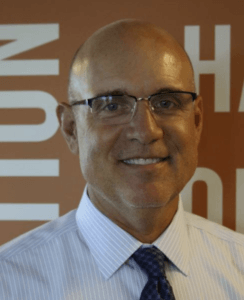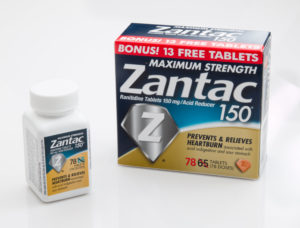One-on-one with…Jeff Stamps, RPh
The world of long-term care pharmacy is about much more than filling and billing. LTC pharmacies serve crucial roles in medication documentation, care planning and error prevention for residents who are managing multiple chronic conditions and are at high risk for adverse drug events. I Advance Senior Care’s Editor-in-chief Pamela Tabar spoke with Jeff Stamps, RPh, President and CEO of Baltimore-based Remedi, a LTC pharmacy company serving 27 states from seven regional distribution locations, to learn more about the industry’s role in the changing senior care environment.

Jeff Stamps, CEO of Remedi
Why outsource pharmacy services?
Providing integrated pharmacy services is more complex than ever, considering the challenges that come with caring for a diverse and clinically complex group of residents, the ongoing integration efforts with technology such as electronic health records (EHRs), and the need for a pharmacy that provides full service 24/7/365. Another significant reason to outsource pharmacy services is the complexity of reimbursement. When I started in pharmacy 35 years ago, we essentially had three groups of residents from a payment perspective: Medicare Part A, Medicaid and private-pay. Now, there's Medicare Part A, Medicare part B, Medicare Part D, third-party commercial programs and Medicaid, all with different formularies, as well as varied clinical and administrative requirements for prior authorizations and utilization management parameters. Most PBMs (Pharmacy Benefit Managers) have varied requirements for medication formularies and coverage restrictions, creating a maze of billing and collection challenges when facilities choose an in-house pharmacy. Navigating this complex system of formulary management and coverage constraints is completed with ease in a traditional outsourced LTC pharmacy, where pharmacy experts and billing staff have specialized knowledge.
How does the role of the consultant pharmacist help with medication management?
It’s not simply about getting the right medication for the right resident and insuring it is billed correctly. The complexity of requirements from the consultant pharmacists increases every year, and it's an underutilized resource for most facilities.
There’s an under-appreciation of the benefits the facility can capture from the consultant pharmacist’s expertise with resident’s medication therapy, as well as combining clinical, regulatory and care coordination expertise with the financial and operational aspects of facilities.
How do you envision the LTC pharmacy world changing in the next few years?
Looking back over my career, the three industry milestones were the shift from bulk to 30-day unit dose or punch card distribution systems, the production of computerized medical records by LTC pharmacies and the exchange of prescription information via facsimile, and then later online. All those milestones happened decades ago, and in many environments, are still used today. Meanwhile, the complexity of the industry, especially around length of stay and acuity, has transformed. In a skilled environment, it’s rare to see the average length of stay greater than 20-22 days, but in many cases, skilled nursing facilities are using 30-day dispensing systems.
The industry has seen significant progress over the past few years in moving toward EHRs. Continued collaboration between nursing facilities, LTC pharmacy operators and EHR providers is necessary to find ways to streamline the communication process, make nurses’ jobs more efficient and reduce opportunities for errors.
When it comes to medication management, where do providers need to step up?
We all have responsibility in this collaboration. I see the next generation of communication in the skilled nursing environment focusing on how we get electronic transparency across the continuum of care—from hospital to skilled nursing, or assisted living, and then to the home care environment.
I encourage consultant pharmacists to be part of the overall process of medication administration and part of the overall clinical services, meaning they interface with nurses, dieticians, therapists and prescribers. They’re part of the overall care plan rather than being siloed as one aspect of clinical care. There should be an ongoing dialogue among consultant pharmacists, medical directors, attending physicians and directors of nursing.

Pamela Tabar was editor-in-chief of I Advance Senior Care from 2013-2018. She has worked as a writer and editor for healthcare business media since 1998, including as News Editor of Healthcare Informatics. She has a master’s degree in journalism from Kent State University and a master’s degree in English from the University of York, England.
Related Articles
Topics: Articles , Clinical , Executive Leadership











